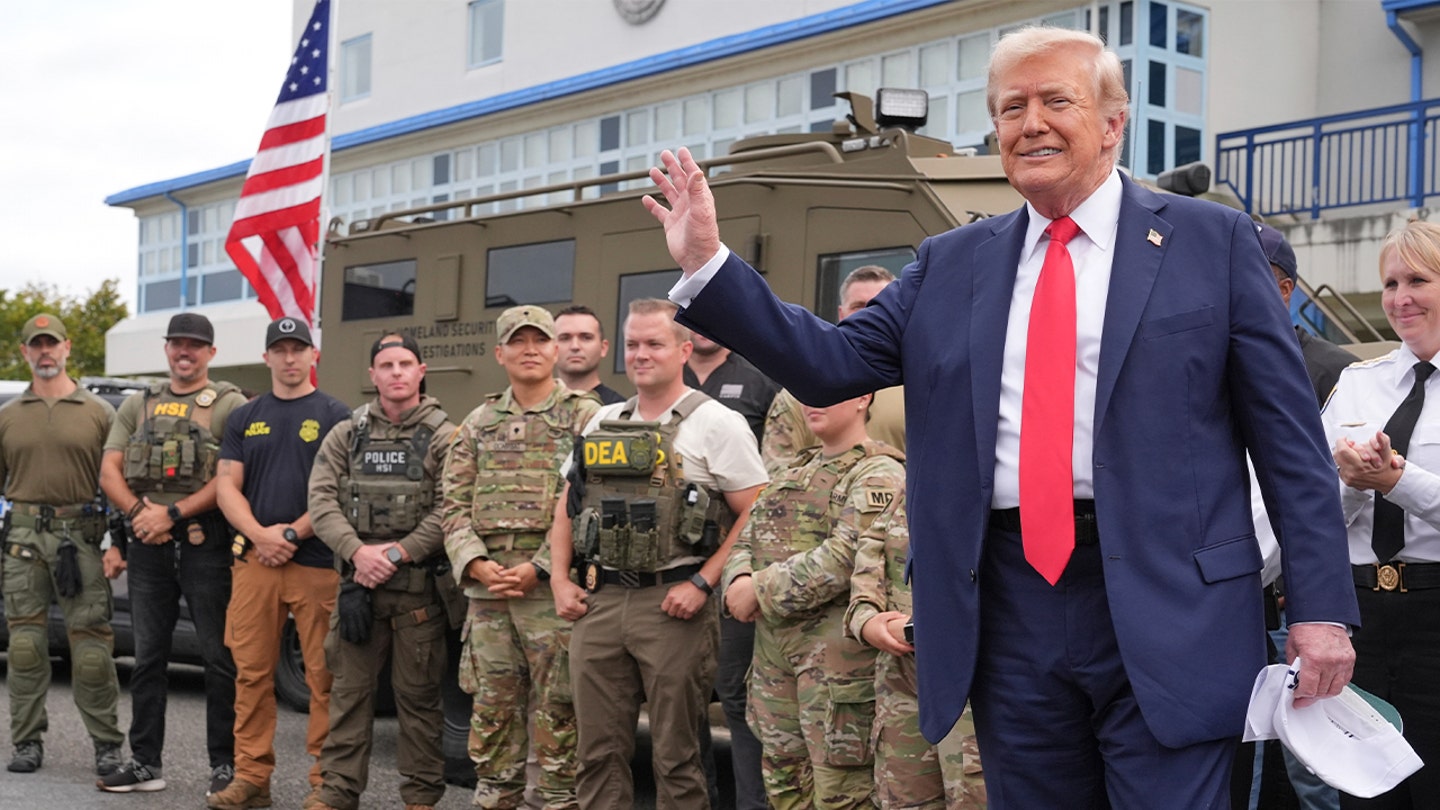
Trump, House GOP allies eye pathways to extend White House crime crackdown in DC
Entities mentioned:
- Donald Trump: Power, Control, Legacy
- House Republicans: Loyalty, Control, Security
- White House: Power, Control, Influence
- Rep. Andy Ogles: Security, Duty, Influence
- Rep. Anna Paulina Luna: Security, Control, Duty
- Rep. Andy Biggs: Security, Control, Influence
- Democrats: Righteousness, Freedom, Moral outrage
Article Assessment:
Credibility Score: 65/100
Bias Rating: 70/100 (Lean Right)
Sentiment Score: 55/100
Authoritarianism Risk: 75/100 (Authoritarian Tendencies)
Bias Analysis:
The article leans right, primarily quoting Republican sources and framing the issue from their perspective. While it mentions Democratic opposition, it doesn't provide equal space or depth to counter-arguments.
Key metric: Crime Rate in Washington D.C.
As a social scientist, I analyze that this article highlights a significant shift in the balance of power between federal and local government in Washington D.C. The proposed legislation aims to extend the President's authority over D.C.'s police force, potentially undermining local autonomy. This move could have far-reaching implications for federalism and urban governance in the U.S. The article suggests a decrease in homicides since federal intervention, but this claim requires further verification. The broader impact on crime rates, community-police relations, and local governance structures needs comprehensive study. This situation raises important questions about the limits of federal power, the rights of D.C. residents, and the potential precedent for federal intervention in other cities.

Fight over policing DC moves to Congress as parties split on control
Entities mentioned:
- U.S. Congress: Power, Control, Influence
- Washington D.C.: Self-preservation, Freedom, Security
- President Trump: Power, Control, Influence
- Republican Party: Control, Power, Righteousness
- Democratic Party: Justice, Freedom, Unity
- Rep. Andy Biggs: Control, Righteousness, Ambition
- Rep. Anna Paulina Luna: Control, Power, Loyalty
- Rep. Andy Ogles: Control, Power, Loyalty
- Sen. Mike Lee: Control, Power, Righteousness
- Rep. James Comer: Control, Righteousness, Professional pride
Article Assessment:
Credibility Score: 75/100
Bias Rating: 55/100 (Center)
Sentiment Score: 40/100
Authoritarianism Risk: 65/100 (Authoritarian Tendencies)
Bias Analysis:
The article presents multiple viewpoints and provides context for both Republican and Democratic positions. While it leans slightly towards emphasizing Republican actions, it also acknowledges potential drawbacks and Democratic counter-arguments.
Key metric: Federal-Local Government Relations
As a social scientist, I analyze that this article highlights a significant power struggle between federal and local government, specifically focusing on Washington D.C.'s home rule. The debate over policing in D.C. serves as a microcosm for broader issues of federalism and local autonomy in the United States. The Republican efforts to increase federal control over D.C. reflect a trend towards centralization of power, while Democratic resistance aims to maintain local governance. This conflict has implications for the balance of power between federal and local authorities, potentially setting precedents that could affect other cities. The article also underscores the political nature of crime and policing issues, with both parties attempting to leverage these topics for electoral advantage. The complexity of D.C.'s unique status as a federal district further complicates the issue, highlighting the ongoing challenges in American federalism.

Pentagon officials blast Washington Post for putting 'lives at risk' with report on Pete Hegseth’s security
Entities mentioned:
- Pentagon officials: Security, Indignation, Professional pride
- Washington Post: Recognition, Influence, Curiosity
- Pete Hegseth: Self-preservation, Security, Duty
- Army Criminal Investigation Division (CID): Duty, Security, Professional pride
- Kingsley Wilson: Loyalty, Security, Indignation
- Sean Parnell: Indignation, Security, Loyalty
- Dan Lamothe: Professional pride, Righteousness, Determination
- Rep. Anna Paulina Luna: Moral outrage, Justice, Security
Article Assessment:
Credibility Score: 70/100
Bias Rating: 65/100 (Lean Right)
Sentiment Score: 25/100
Authoritarianism Risk: 55/100 (Mixed/Neutral)
Bias Analysis:
The article leans right, evidenced by its focus on Pentagon officials' criticisms of the Washington Post and inclusion of multiple conservative voices. While it includes the Post's perspective, it gives more space and emphasis to those condemning the report.
Key metric: National Security Perception
As a social scientist, I analyze that this article highlights a significant tension between press freedom and national security concerns. The Washington Post's reporting on Secretary Hegseth's security details has sparked outrage among Pentagon officials, who claim it jeopardizes the safety of Hegseth and his family. This conflict underscores the delicate balance between transparency in government operations and the need to protect sensitive information. The public reaction, particularly from government officials, suggests a growing concern about the vulnerability of high-ranking officials in an increasingly polarized political climate. This incident may lead to increased scrutiny of media practices regarding reporting on security measures and could potentially influence future policies on information sharing between government agencies and the press. The strong reactions from multiple Pentagon officials indicate a unified stance on prioritizing security over press freedom in this instance, which could have implications for future media-government relations and public perception of national security priorities.